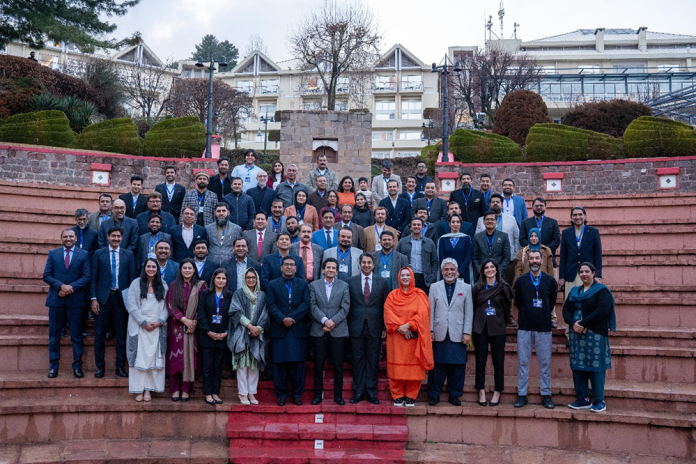Government and private stakeholders reached a mutual understanding on the imperative to align legislation across various sectors, particularly focusing on provincial tax structures and environmental regulations. This consensus emerged as the centerpiece of a multi-stakeholder national gathering organized by CoRe Alliance, Baby Food and Nutrition Council, and Fruit Juice Council, and it was recognized as essential for unlocking business potential in Pakistan, spurring economic growth, and improving the overall quality of life.
Hosted in Bhurban, the convening brought together political figures, representatives from federal and provincial agencies, private sector leaders, and media personnel. The discussions revolved around streamlining regulatory processes and simplifying business operations. The session commenced with an inauguration by Ali Pervaiz Malik, the State Minister for Finance and Revenue, and featured notable addresses by Rana Ihsaan Afzal, the Coordinator to the Prime Minister, and Jameel Qureshi, Federal Secretary SIFC.

The dialogue centered on establishing a regulatory framework that would facilitate business through harmonization. Participants addressed challenges related to parallel trade, counterfeit products, and issues concerning packaging and environmental standards. In his remarks, Minister Ali Pervaiz Malik stressed the need for a strategic policy realignment to foster business growth and outlined ongoing reforms such as the Regulatory Guillotine, the activation of the National Tax Council, and initiatives led by the Board of Investment (BOI).
Rana Ihsaan Afzal introduced the Uraan Pakistan initiative, advocating for a focus on three critical elements: promoting export-driven growth, bolstering the IT sector, and implementing sustainable energy policies. Meanwhile, Jameel Qureshi detailed eight essential strategies for achieving sustainable economic progress, including a shift towards export-led growth, the formulation of a long-term economic roadmap, the digitization of economic processes, and measures to encourage domestic production. Additionally, Sheikh Waqar Ahmad, representing industry alliances, emphasized the significance of public-private consultations in forging consensus and driving regulatory harmonization as a fundamental economic strategy.

Participants also recognized the success of harmonized national food standards as a benchmark, urging a similar unified approach in other regulatory areas. Variations in provincial tax regimes were highlighted as obstacles to business efficiency, with a Federal Board of Revenue (FBR) representative mentioning ongoing collaborations with the World Bank to coordinate tax reform efforts. The proliferation of counterfeit, spurious, and gray market products—violating S.R.O 237—was noted as a key factor undermining the market share of legitimate enterprises, while the opportunity to export packaged food to meet rising demand in Halal markets was also underscored.
The convening further spotlighted the effectiveness of Extended Producer Responsibility (EPR) schemes, which have been successful when implemented in stages with strong public and private sector cooperation, including consumer engagement. Recycling was reaffirmed as the backbone of a circular economy, supporting the call for comprehensive environmental legislation. In her concluding address, Ms. Farzana Altaf, Director General of the Pakistan Environmental Protection Agency, reiterated the urgent need for a unified environmental law to underpin a sustainable, circular economy.

Key government bodies also participated in the gathering, including the Special Investment Facilitation Council (SIFC), the Board of Investment (BOI), the Pakistan Standards & Quality Control Authority (PSQCA), all Provincial Food Authorities, the Federal Board of Revenue (FBR), the Ministries of Commerce and Industries & Production, the Senate of Pakistan, the National Tariff Commission, and various provincial Environmental Protection Agencies (EPAs).


